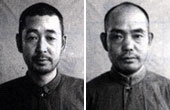Palestinians launch campaign to boycott Israeli products
(Xinhua) Updated: 2014-08-08 11:04The Israeli offensive on the Gaza Strip has led to a growing support of resistance in the West Bank, but of a different kind. Increasing numbers of Palestinians in the West Bank have declared war on the Israeli goods.
 |
| Calm restores in Gaza amid 72-hour ceasefire |
The state of public fury against the Israeli offensive in Gaza has made the boycott movement gain unprecedented momentum, and many Palestinian interviewed said they wouldn't stop even if a truce was secured.
On Tuesday, the largest Palestinian chain supermarket "Bravo" started joining the call to boycott by clearing Israeli products off its shelve.
"We don't have Israeli products. Gaza is victorious," a sign over the empty shelves read. Journalists and social media activists are promoting for the move, and two local radios promised to give free advertisement to these shops.
Subhi Naser, 32, is boycotting for the first time, "I wanted to start my peaceful resistance movement after seeing the massacres committed against my people," he said, adding that "this was the only way that goes along with my principles."
Activists from a campaign called "Support Your Occupation" aimed to call for the Palestinians to tour the West Bank shops labeling Israeli goods with a unified sticker, reading "16 percent of this product's price goes to the Israeli army," which referred to the taxes that eventually go to the Israeli government.
These campaigns are succeeding in creating a breakthrough and more shops are joining the call. Activist Tomallah said customers were affected by the label, "the consumer behavior changed as they knew that buying Israeli product supports the Israeli army that is killing their fellow citizens in Gaza."
However, analysts say the boycott would not harm Israel's economy, particularly it can't go too far. "Israel is the sole provider of water, electricity, and fuel to the Palestinians and giving that up means that the Palestinians will be deprived from basic life materials," economics professor Nasr Abd Al-Karim said.
It is estimated that a long-term boycott of Israeli products would only cost Israel 400 to 500 million US dollars, still a relatively small part in the Israeli economy, according to Abd Al- Karim.
On the other side, Abdul Karim Barghouti, chairman of Ibrahim Abu-Lughod Institute of International Studies said economics is not the key goal. "The boycott has moral and political effects, particularly by defining Israel as an occupying country," he said.
Related stories:










